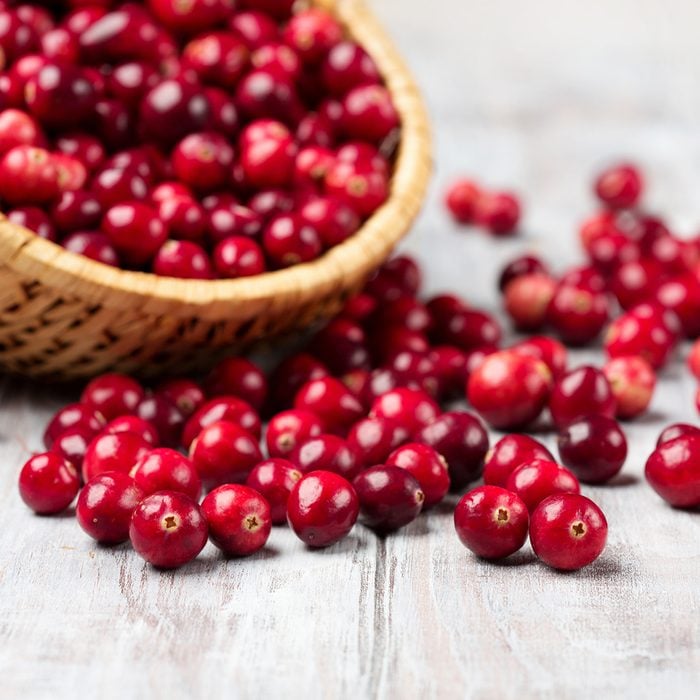
Prevents Urinary Tract Infections
While cranberry juice won’t cure a urinary tract infection, it can prevent one in the first place. “Cranberries have been shown to reduce the incidence and recurrence of urinary tract infections (UTIs) in men, women and children,” says Carlene Thomas, RDN, founder of OhCarlene. Staying hydrated helps too, so try sipping on a cool fruit-infused water.
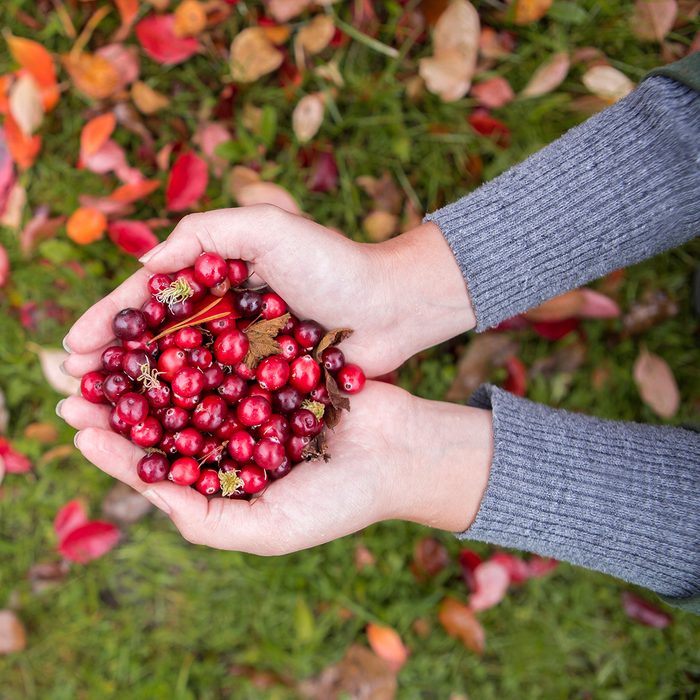
Improves Digestion
Cranberries are high in natural fiber and contain about 4.6 grams per serving. This hit of fiber keeps your digestive tract moving along and prevents constipation. It also keeps you full, preventing afternoon sugar cravings and too much snacking.
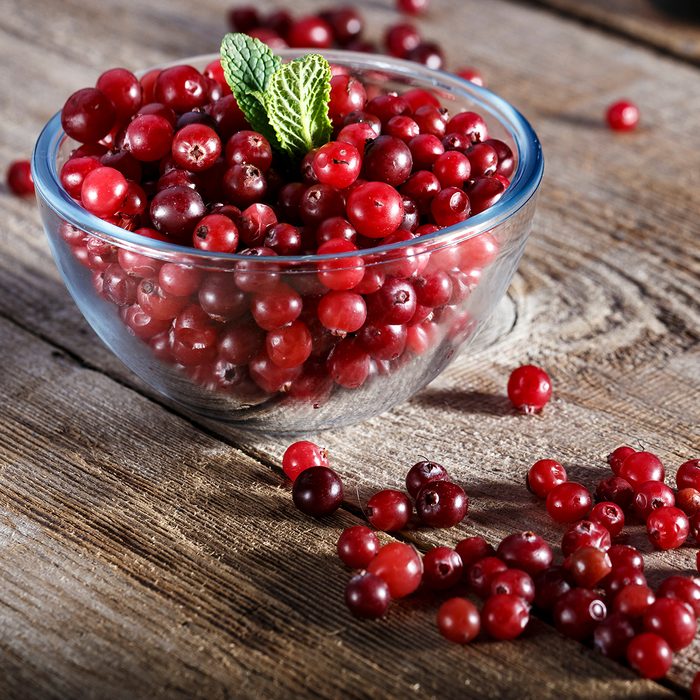
Reduces Blood Sugar
Cranberries get their signature tart flavor from their low sugar content. They’re one of the lowest sugar fruits and can even help control blood sugar. Try drinking a small cup of low-sugar cranberry juice every morning or tossing dried cranberries on a fresh arugula salad for lunch to get the benefits. You can also learn how to make your own cranberry sauce from scratch.
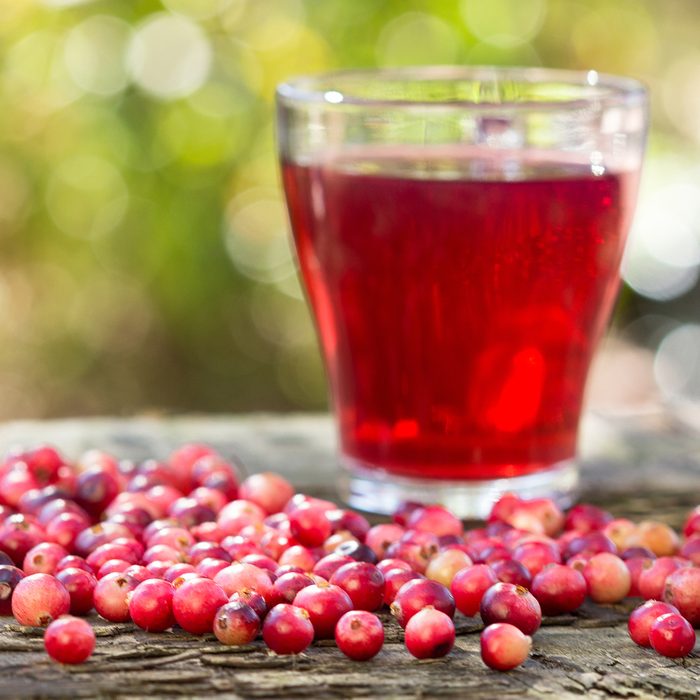
Improves Gut Health
If you’ve been downing a gallon of yogurt every day to get your probiotics, try sprinkling some cranberries over your parfait. Cranberries can improve the health of your gut by promoting healthy bacteria. “Gut health is a new area of exploration for cranberries, as emerging evidence shows that cranberries may affect the gut microbiota, as well as reduce intestinal inflammation,” says Thomas.
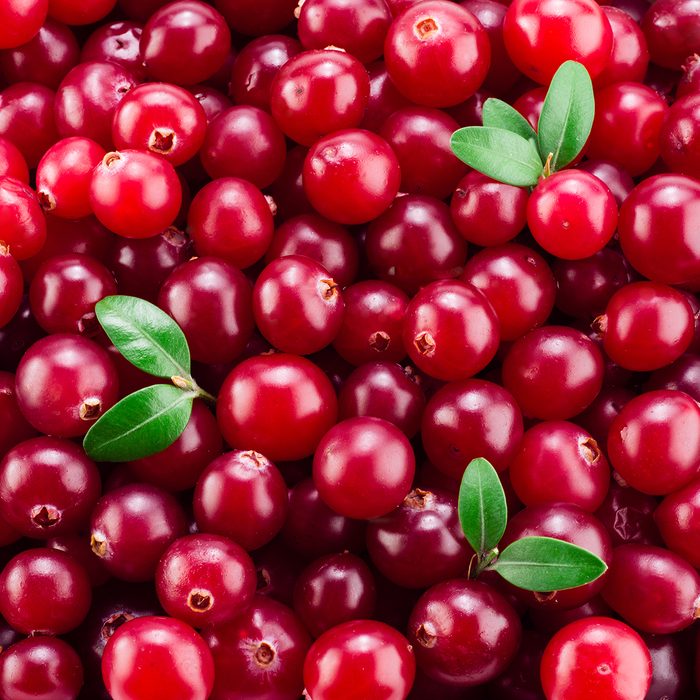
Improves Heart Health
While a big Thanksgiving dinner might not be the healthiest option for your heart, the cranberries could make up for it. The health benefits of cranberries have been linked to improved cholesterol, lowered blood pressure and lowered inflammation.

Supports Glowing Skin
Cranberries are high in vitamins A and C, which promote collagen production to give us springy, glowing skin. “Vitamin C is an important nutrient that promotes healthy skin,” explains Thomas. “Eating fruits and vegetables that contain vitamin C, like cranberries, helps promote healthy skin.” Love natural beauty treatments? Whip up this avocado face mask!
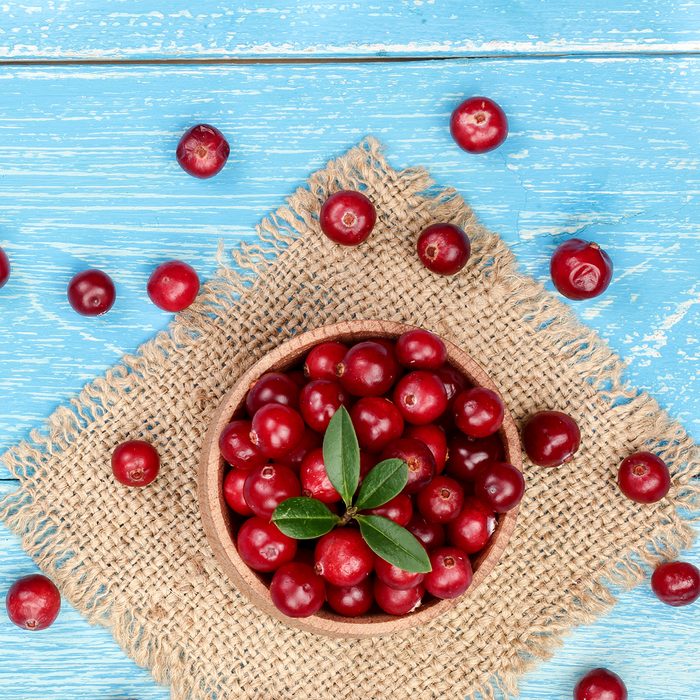
Reduces Cholesterol
Cranberries are one of the foods that can lower cholesterol naturally. Research has found a link between eating cranberries and lower levels of LDL (or bad) cholesterol. Sugary cranberry juice could raise cholesterol though, so opt for a fresh cranberry salad instead.
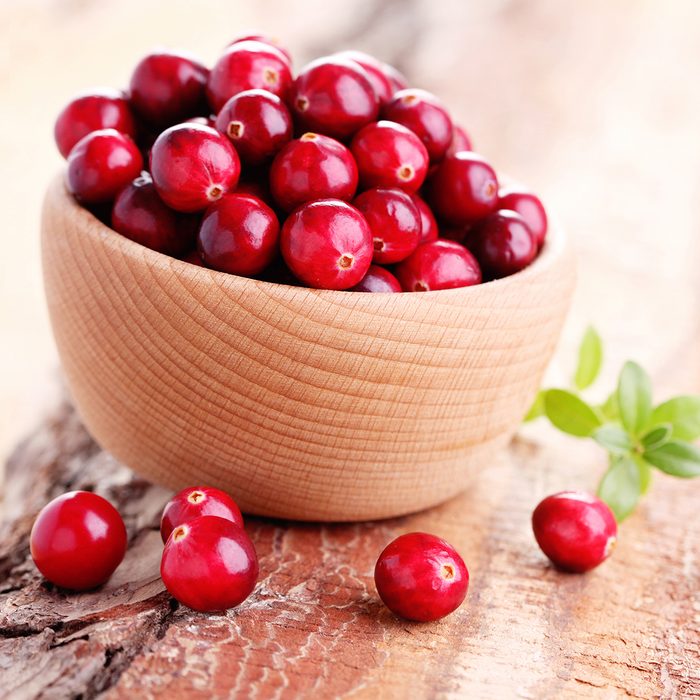
Prevents Gum Disease
Snack on cranberries for a healthier mouth. Cranberries have antimicrobial effects and can reduce the number of bacteria on your gums and teeth. They also help to prevent inflammation, keeping gums clean and healthy. To get these cranberry benefits, skip sugary juices and have your cranberries with healthy grains and fruits.
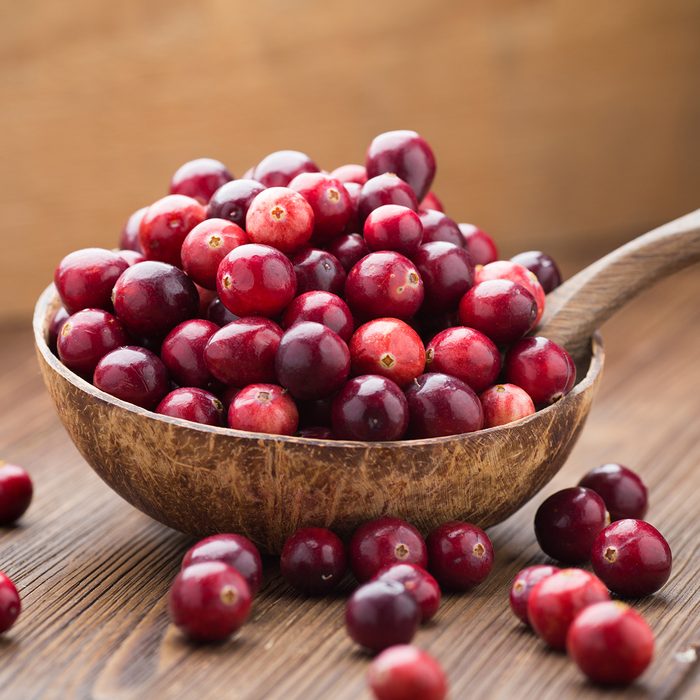
Strengthens Your Immune System
Feel a sore throat coming on? Pass on the orange juice and reach for cranberries instead. Their high vitamin C level can keep germs at bay. Their antioxidants can also keep you healthy. “Cranberry compounds help protect the body from destructive free radicals,” says Thomas.
